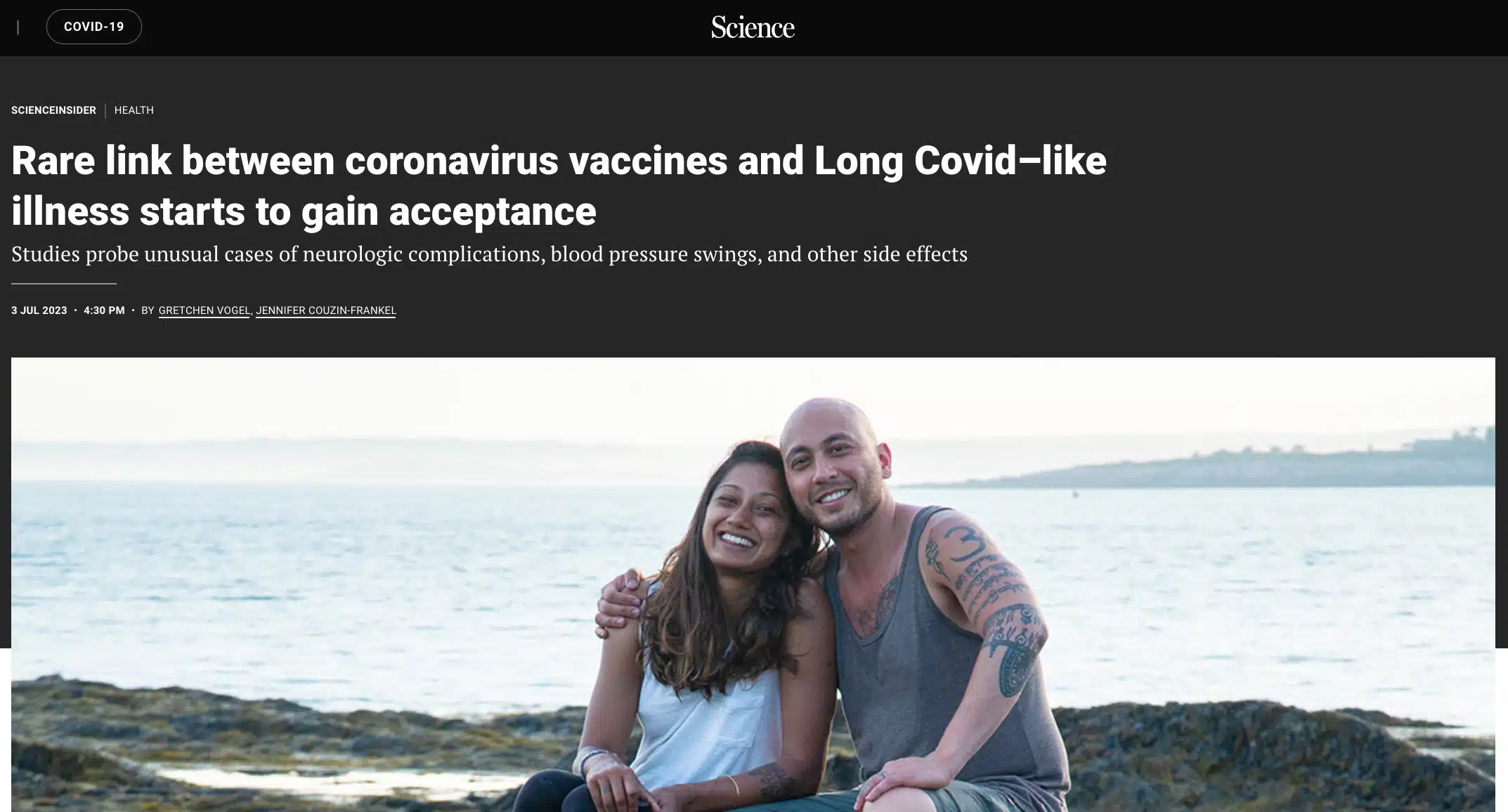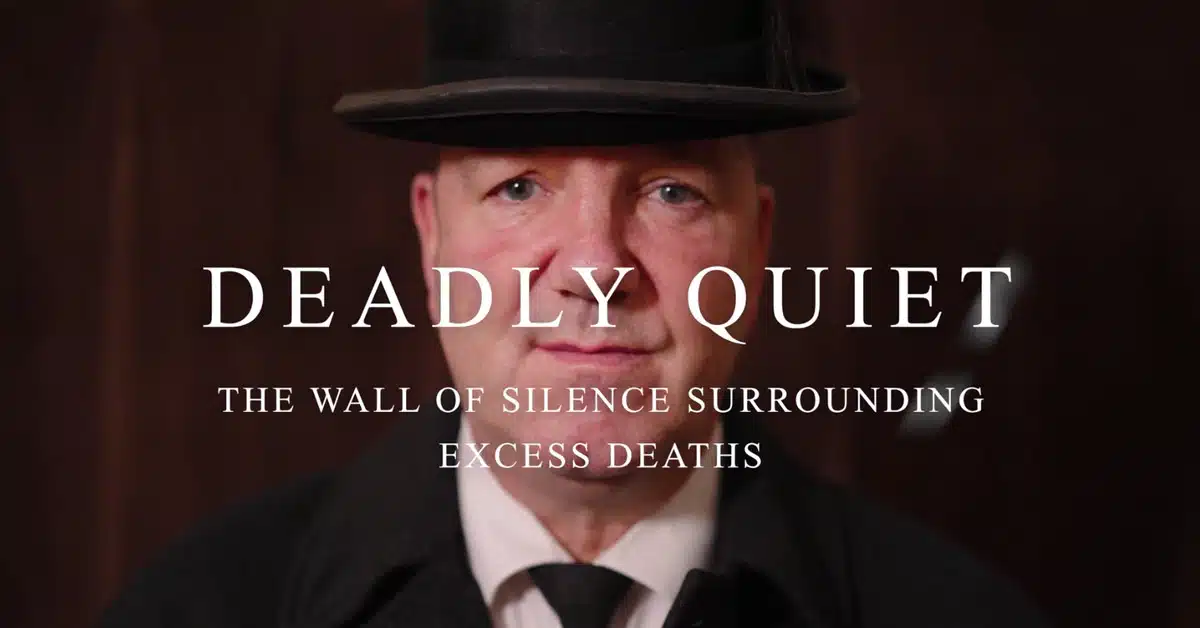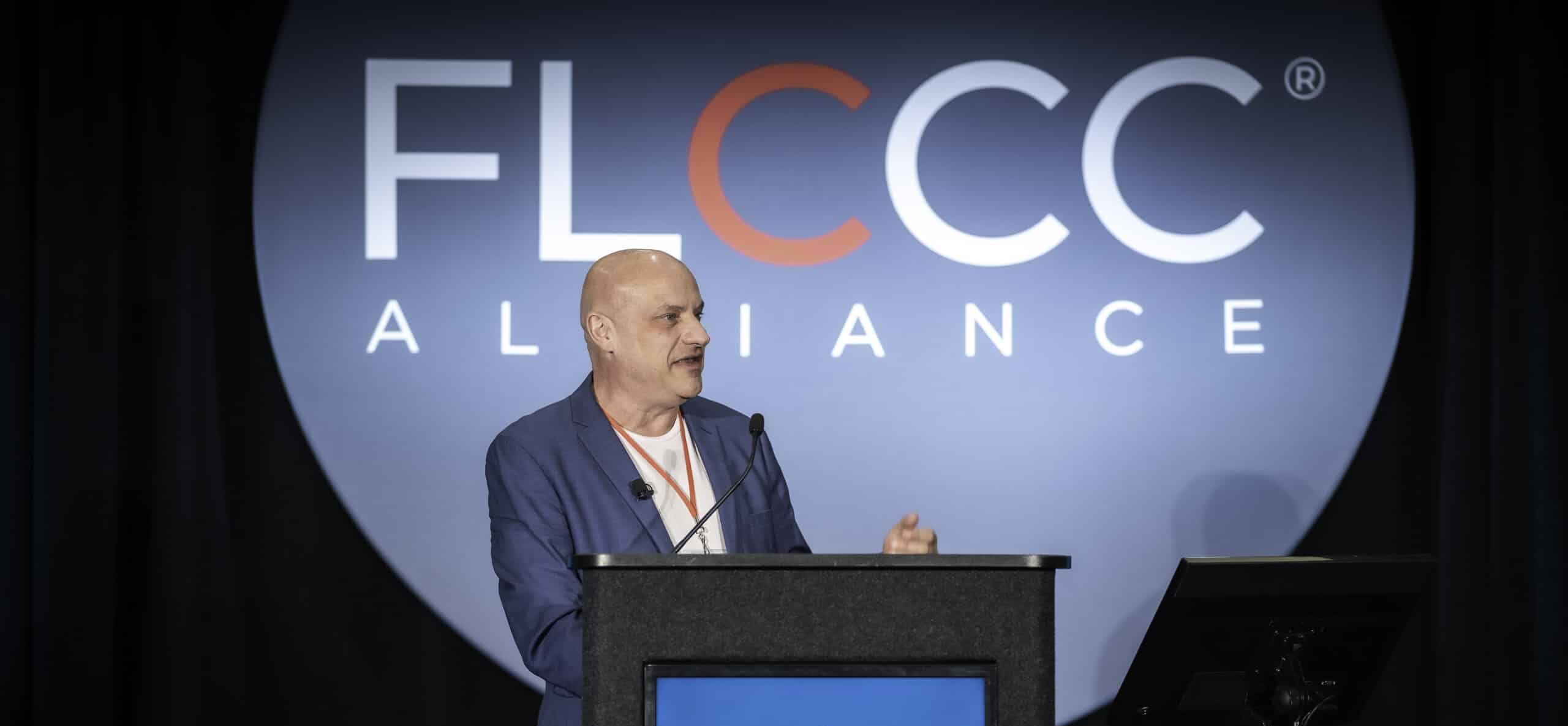Dr. Keith Berkowitz wonders if a recent article about vaccine injury in Science Magazine is a watershed moment.

|
Guest post by Dr. Keith Berkowitz, Center for Balanced Health On July 3, 2023, Science Magazine ran an article about vaccine injury, a concept we have not been able to talk openly about for the past few years without severe repercussions. Are the times changing? Science Magazine is considered one of the world’s premier, mainstream academic journals, with about 130,000 subscribers. So, could this be a watershed moment? Or is it just more gaslighting? Let’s look at the story and see what it says. The first word of the headline, of course, is “rare” — an attempt to emphasize just how uncommon these patients are. “Cases seem very rare — far less common than Long COVID after infection,” the authors write, although they give no statistics to back this assertion up. Symptoms of “long vax”, as they call it, can include persistent headaches, severe fatigue, and abnormal heart rate and blood pressure that appear hours, days, or weeks after vaccination. They say these syndromes “are difficult to study. But researchers and clinicians are increasingly finding some alignment with known medical conditions” like small fiber neuropathy and postural orthostatic tachycardia syndrome (POTS). The article quotes the FDA’s Peter Marks as saying, “We can’t rule out rare cases… If a provider has somebody in front of them, they may want to take seriously the concept [of] a vaccine side effect.” Doctors like me and my colleagues at FLCCC have been taking this seriously for two years. We didn’t need Peter Marks’ blessing to do so. We saw patients who needed help, and we put together an effective treatment plan to help them. That’s what we believed good doctors should do. Doing so got us labeled “quacks”, “conspiracy theorists”, and “antivaxxers.” A cardiologist at Yale University who is studying post-vaccine complications told Science that, at first, he was hesitant to embark on this line of inquiry because of concerns that “the antivaccine movement would seize on any research findings.” Now however, he says he is persuaded that “there’s something going on” and that “It’s my obligation, if I truly am a scientist, to have an open mind and learn if there’s something that can be done.” Amen to that. We’re glad you’re here doctor. Let us know how we can help. The FLCCC’s I-RECOVER post-vaccine protocol, which has been widely ignored by mainstream medicine and ridiculed by mainstream media, has some very effective treatment suggestions, including low-dose naltrexone, zinc, and whole-body vibration therapy to tackle small fiber neuropathy. The doctors in the FLCCC Alliance who treat vaccine-injured patients know and agree with the Columbia University specialist quoted in the article who said post-vaccination illness is “a long, relentless disease.” It is our sincere hope that we can move beyond the ideologically-driven paralysis that has gripped our profession and return back to a focus on compassion and patient care. Vaccine injury — let’s just call it that now, ok? — is complicated and scientists need to work together to understand the different mechanisms, determine who is most at risk, and find objective ways to measure what works and what doesn’t. Let’s hope the pandemic of propaganda is over and the age of healing has begun. |





